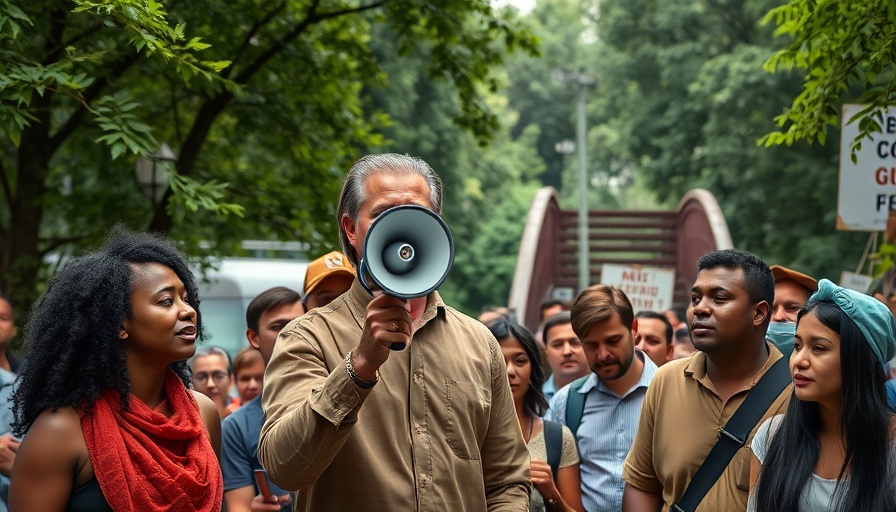
A Life of Activism for Justice
Gary Fields, a politically outspoken professor at UC San Diego, has become a pivotal figure advocating for Palestinian rights. With a career that bridges academia and activism, Fields illustrates how education can empower social movements and spark vital conversations about justice. His journey, fueled by transformative experiences and a commitment to equity, showcases the profound role educators can play in shaping societal perspectives.
Impactful Moments in Activism
Fields first caught the public's eye during a significant protest on April 2, when he delivered a poignant speech during a walkout organized by the Students for Justice in Palestine (SJP). The walkout was in response to the arrest of activist Mahmoud Khalil - an incident that highlights the ongoing challenges faced by those advocating for Palestinian rights. Fields boldly criticized Columbia University’s inaction, stating, "Columbia’s indifference to the plight of Mahmoud Khalil is a metaphor of this broader assault to criminalize protest against the state of Israel and its genocide to Palestinians in Gaza.” His words resonate deeply, reflecting not only the urgent plight of Khalil but also the risks faced by students and activists around the world.
Connecting Personal Stories to Global Realities
Fields’ journey began long before his tenure at UCSD. Raised in a Jewish Zionist family, he initially held pro-Israel sentiments. However, a transformative experience as a foreign exchange student at the University of Kent led him to engage with Palestinian perspectives for the first time. This pivotal moment challenged his views and ignited a passion for justice that continues to inform his work. It showcases how personal narratives intertwine with broader societal challenges, motivating others to rethink their positions.
Educator Turned Activist: A Personal Transformation
In 2003, after being awarded tenure for his work "Territories of Profit," Fields faced a choice between a celebratory trip to Hawaii and a journey to Palestine. Influenced by friends at UC Berkeley, he chose the latter, marking a defining shift in his life. His experiences abroad were captured in his book, "Enclosure," where he reflects on witnessing the Qalandia barrier—a symbol of division that starkly represents the injustices faced by Palestinians. This transformation exemplifies how individuals can evolve through experiences, leading them towards activism.
The Urgency of Now: Campuses as Grounds for Change
Fields’ recent comments regarding potential repercussions for UCSD's over 8,000 international students highlight the acute awareness of systemic issues present even on campus. Following the recent loss of F-1 visas for 35 students, the need for advocacy in educational settings becomes ever clearer. As students delve into activism, Fields leads by example, demonstrating that intellectual engagement can extend beyond the classroom and into broader movements for justice.
Lessons and Inspiration for Future Activists
Fields’ story encourages students and community members alike to engage with the pressing issues of our time. By advocating for human rights and exploring diverse viewpoints, we can cultivate environments that challenge the status quo. It's essential for young activists to address injustices locally and globally, equipped with the knowledge and empathy gained through education.
Conclusion: A Call to Action for Community Engagement
If you feel inspired by Gary Fields’ journey to become an activist and advocate for justice, consider your role in the community. Engage in conversations, seek out diverse perspectives, and participate in local initiatives that promote awareness. Every action counts, and together we can drive change that echoes far beyond our campuses and communities.
 Add Row
Add Row  Add
Add 




 Add Row
Add Row  Add
Add 


Write A Comment